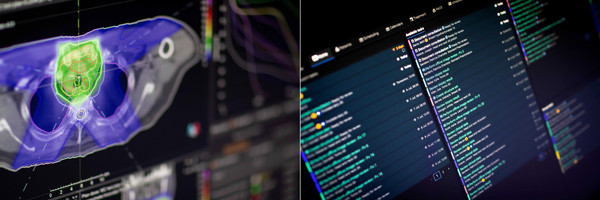The Seoul National University Hospital (SNUH) is speeding up efforts to open a cancer center in Busan for heavy ion therapy.
On Wednesday, the SNUH said it signed an agreement with Swedish company RaySearch Laboratories to use the latter’s treatment planning system (TPS) and oncology information system (OIS) to introduce heavy ion therapy for cancer patients.

RaySearch Laboratories develops software solutions for cancer radiation therapy with next-generation technologies. The company supplies radiation therapy software to 850 institutions in 42 North American, Europe, and Asia Pacific countries.
The agreement signing was attended by SNUH President Kim Yon-su, Heavy Ion Therapy Project Leader Wu Hong-gyun, and RaySearch CEO Johan Löf.
TPS helps establish a plan for heavy ion therapy by calculating and verifying radiation dose, which is essential for heavy ion therapy.
OIS transmits the created treatment plan to the treatment device and manages the plan.
The Swedish firm’s TPS can optimize the treatment plan not only for the carbon ion beam used in existing heavy ion accelerators but the helium ion beam of the heavy ion accelerator used at the SNUH.
The SNUH aims to open the heavy ion therapy center in Gijang County in Busan in 2027.
The hospital signed a contract for heavy ion accelerators in 2020 and completed the interim design for the heavy ion therapy center in 2021.
The SNUH’s heavy ion accelerator project team said it planned to design the interface in advance based on the purchased systems before introducing the best heavy ion therapy devices.
The hospital will also utilize the non-clinical treatment planning system, installed in August, for preliminary research.
“The latest purchase agreement will push us one step further for our hospital’s major project to build Gijang Cancer Center (tentative name) equipped with a heavy ion therapy system in Busan,” Kim said. “We will do our best to provide the best heavy ion cancer therapy.”

